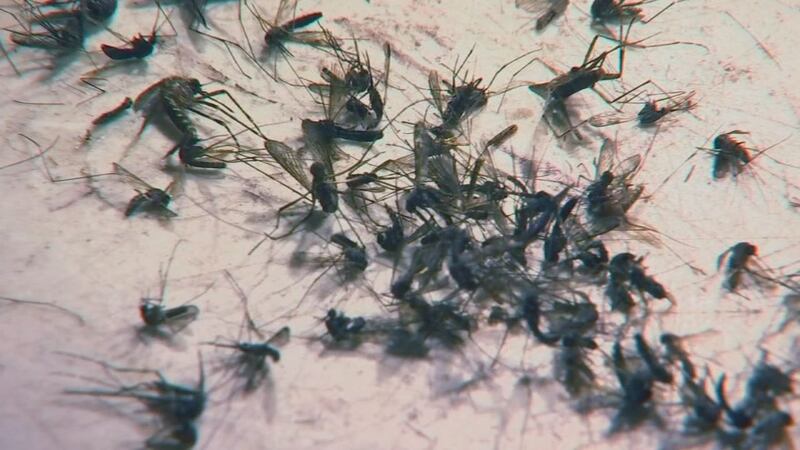ORLANDO, Fla. — There’s a new type of moquito in town. It traveled to Florida from across the tropics and brought with it new disease concerns.
A mosquito known only by its scientific name, Culex lactator, is the latest to establish in the Sunshine State, according to a new study by UF/IFAS Florida Medical Entomology Laboratory.
>>> STREAM CHANNEL 9 EYEWITNESS NEWS LIVE <<<
“We need to be vigilant for introductions of new mosquito species because each introduction comes with the possibility that the introduced species will facilitate the transmission of a mosquito-transmitted disease,” said Lawrence Reeves, lead author of the study and an assistant professor and mosquito biologist at the UF/IFAS research center in Vero Beach.
Read: Seminole County leaders say measures used to control mosquito population are working
Researchers said there are around 90 mosquito species in Florida out of the more than 3,600 types of mosquitos found globally. When a new type is found in Florida, Reeves and his team use DNA analysis and other tools to identify it.
Researchers said Culex lactator is found in Central America and northern South America, and is part of the species that transmit the West Nile and St. Louis encephalitis viruses. But researchers said it is unclear whether Culex lactator will contribute to the transmission of those viruses in Florida.
So far, the Culex lactator is known to live in Collier County – south and west of Naples – Lee County west of Fort Myers, and in the Homestead area of Miami-Dade County, though it may have also spread elsewhere in the state.
Scientists said they are concerned about the rate and frequency of new species establishing in Florida. Reeves said the detections of nonnative mosquito species are increasingly frequent, with 11 of 17 nonnative species first reported in the past two decades, and six of these 17 detected in only the past five years.
Read: Orange County to give away 9,000 traps to help zap growing mosquito numbers
“Climate change may improve the chances of tropical mosquito species becoming established once they make it to Florida if the state becomes warmer,” Reeves said. “Increasing storm frequency and intensity could also blow in more mosquitoes and other species from the Caribbean, Central America and elsewhere.”
Click here to download the free WFTV news and weather apps, click here to download the WFTV Now app for your smart TV and click here to stream Channel 9 Eyewitness News live.
©2023 Cox Media Group










